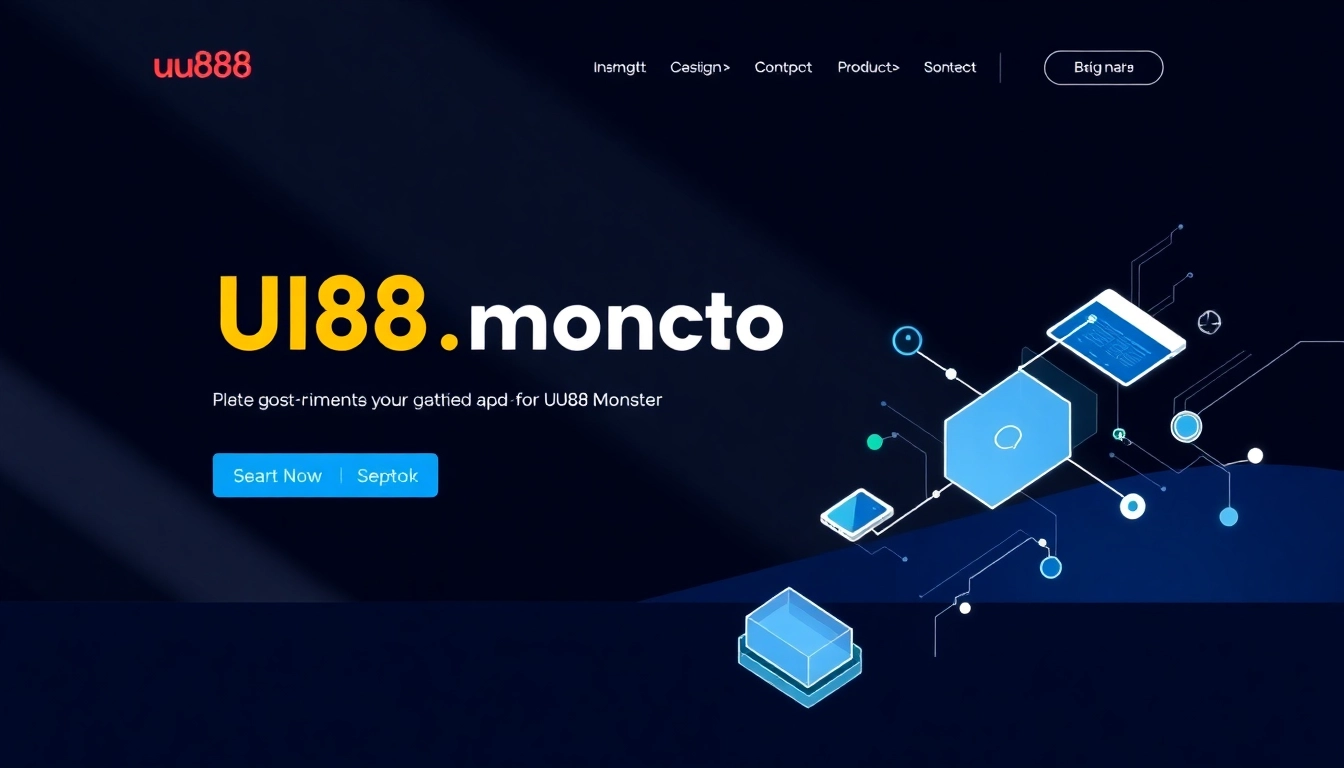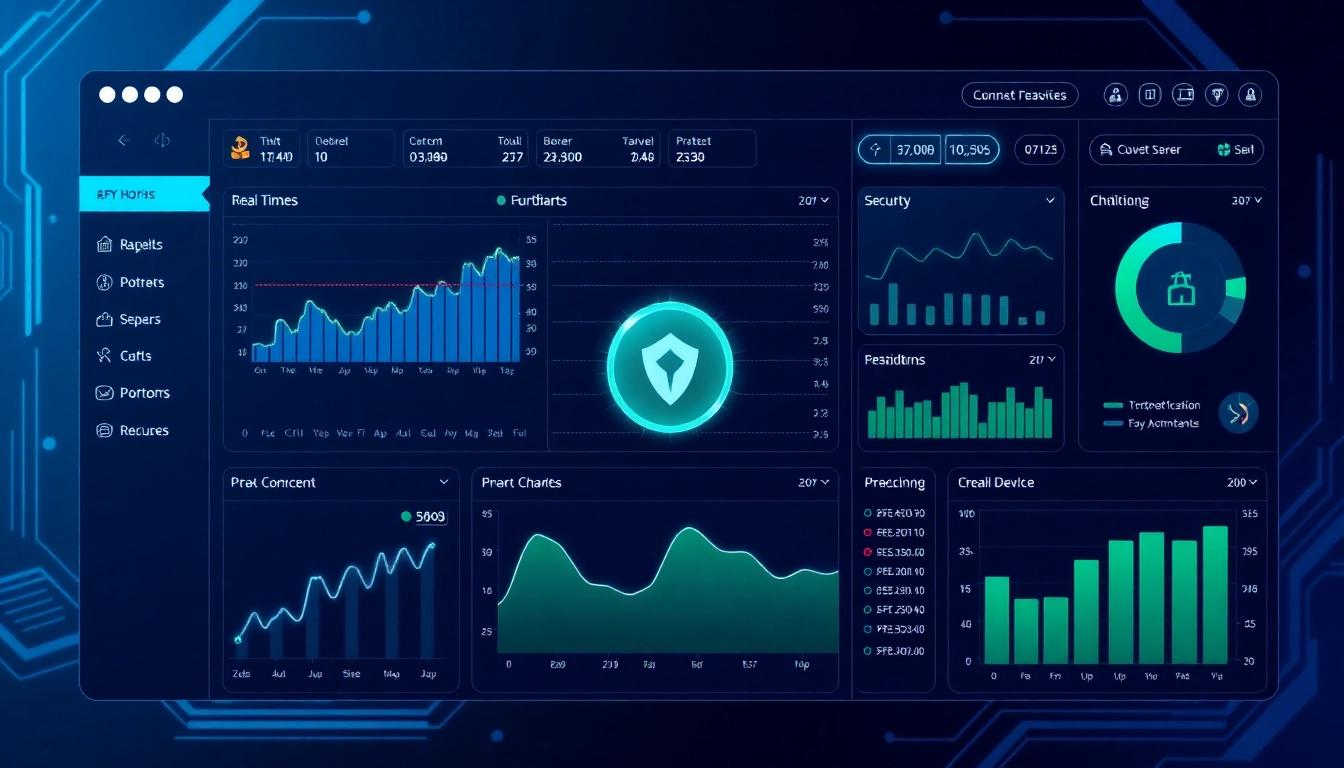Understanding the Core Features of a Real Estate CRM
Comprehensive Client and Lead Management
At the heart of any successful real estate operation is robust client and lead management. A top-tier Real estate CRM consolidates all client interactions, contact details, preferences, and transaction histories into a centralized platform. This allows agents to nurture relationships more effectively, tailor communications, and identify sales opportunities with accuracy.
Modern CRMs like Anyone’s platform leverage large datasets — accessing over 300 million property data points — enabling agents to understand client needs on a granular level. For instance, by tracking past inquiries or preferred property types, agents can proactively suggest relevant listings, increasing engagement and conversion rates. Additionally, automated follow-up campaigns ensure no lead slips through the cracks, boosting overall sales pipeline health.
Beyond simple contact logging, advanced CRMs facilitate segmentation, allowing agents to categorize clients for targeted marketing efforts, streamline appointment scheduling, and manage post-sale follow-ups seamlessly. The result is an enriched client experience, driven by personalized, timely interactions that foster trust and loyalty.
Listing and Workflow Automation Tools
Automation is a game-changer in real estate, reducing manual workload and minimizing errors. Anyone’s platform offers sophisticated listing management tools that auto-fill property details from extensive databases, enabling agents to create or update listings within seconds. Automatic status updates and to-do lists keep all stakeholders informed, ensuring smooth transaction progress.
Workflow automation extends further, orchestrating tasks such as scheduling viewings, negotiating deals, and documenting contracts. For example, once a listing is published, the system can automatically notify potential buyers, assign follow-up tasks, and track stakeholder responses. This reduces administrative burden and allows agents to focus on high-value activities like client consultations and negotiations.
Guided transaction facilitation features ensure that agents and clients stay aligned throughout the buying or selling process. Automatic reminders, real-time status updates, and integrated document management help keep deals on track, reducing delays and bottlenecks.
Integrated Communication and Collaboration Platforms
Clear, consistent communication is vital for closing deals effectively. Anyone’s platform consolidates all client and partner interactions into a single, shared hub—combining chat, email, and document exchanges—ensuring transparency and easy tracking. Real-time collaboration tools enable agents, clients, notaries, and mortgage providers to work together within the platform, accelerating decision-making.
By structuring conversations around specific deals and clients, agents can quickly access history logs, notes, and upcoming tasks. For example, connecting viewings, negotiations, and offers within one interface eliminates the need for disparate tools or manual note-taking.
The platform’s integrated viewing and negotiation system simplifies scheduling, allowing clients to select preferred dates, while agents can make offers and counteroffers directly, streamlining the entire transaction cycle. This seamless communication enhances the customer journey, fosters trust, and accelerates deal closures.
Benefits of Implementing a Real Estate CRM in Your Agency
Enhancing Customer Experience and Satisfaction
A sophisticated Real estate CRM transforms the client experience from transactional to relational. By providing personalized service at every stage—auto-filled listings, real-time updates, and proactive engagement—agents build stronger bonds with clients. Clients appreciate transparency, quick responses, and tailored recommendations, which significantly boost satisfaction and referral potential.
For example, Anyone’s platform automatically updates clients about new listings matching their criteria, keeping them engaged without manual follow-up. This proactive approach creates the impression of attentiveness and professionalism, leading to stronger client relationships over time.
Increasing Sales Efficiency and Closing Rates
CRM implementation streamlines lead management, automates routine workflows, and facilitates faster decision-making. Automated lead routing ensures motivated prospects are matched with the right agents promptly. For instance, Anyone’s ‘Find an Agent’ tool employs over 12 billion data points, driving highly targeted leads directly to agents matching specific client profiles.
In addition, integrated negotiation tools and real-time collaboration enable agents to respond instantly to inquiries, set up viewings, and negotiate offers. The automation of repetitive tasks—such as data entry and follow-up emails—frees agents to focus on closing deals rather than administrative chores, consequently elevating closing ratios.
Saving Time with Automated Processes
Time savings are one of the most direct benefits of a well-implemented CRM. Features like auto-importing and auto-filling property details from extensive databases eliminate manual data entry, speeding up listing creation. Automated notifications and task assignments keep everyone aligned without constant manual oversight.
For example, transaction facilitation tools automatically keep clients informed about each step, reducing the need for back-and-forth updates. Scheduling viewings and handling negotiations from one dashboard cuts down communication delays, empowering agents to close sales faster and enhance operational efficiency.
How to Choose the Right Real Estate CRM for Your Business Needs
Key Features to Look For
Selecting the optimal CRM involves evaluating features that align with your agency’s unique requirements. Essential capabilities include comprehensive contact management, listing automation, integrated communication tools, transaction management, and lead generation functionalities. Platform flexibility—allowing customization and scalability—is crucial for future growth.
For instance, Anyone offers an array of powerful features like access to over 300 million property data points, integrated viewing systems, and real-time collaboration, making it a comprehensive choice. Ensuring the platform supports automation of routine tasks, like data entry and follow-up, will save significant time and improve accuracy.
Scalability and Integration Capabilities
As your real estate business expands, your CRM should seamlessly scale to handle increased data volume and user load. Compatibility with other essential tools—mortgage providers, notaries, marketing platforms—is equally critical. CRMs like Anyone are built with integrations in mind, allowing effortless connections to external services, enhancing operational workflows.
For example, upcoming features like mortgage providers integration and notary services within Anyone’s platform significantly streamline the transaction process. A scalable CRM adapts to your growth, ensuring continuous performance without costly migrations or system overhauls.
Cost, Security, and User Support
Budget considerations are paramount. While some CRMs offer free or low-cost plans, they often lack advanced features or support. Anyone’s platform is available at a competitive rate of $99/month, providing extensive features with assured data security. Data security is ensured through encryption, regular backups, and compliance with industry standards—vital for protecting sensitive client information.
Additionally, supported onboarding, training, and ongoing technical support are essential for maximizing CRM adoption. Choose a provider with a proven support track record and clear security protocols to ensure peace of mind and operational continuity.
Real Estate CRM Best Practices for Success
Training Your Team Effectively
Even the most sophisticated CRM is only as effective as its users. Comprehensive training programs, leveraging video tutorials, live workshops, and detailed documentation, are essential. Ensuring all team members understand core functionalities—listing management, communication tools, deal tracking—maximizes ROI.
Consistent training fosters familiarity, encourages regular use, and uncovers hidden features that can enhance productivity. For example, onboarding new agents with hands-on sessions on Anyone’s transaction tools accelerates adoption and reduces errors.
Embedding CRM into Daily Operations
Integration into everyday routines ensures data remains current and workflows stay streamlined. Establishing standard operating procedures, such as logging all client interactions in the CRM, automating task creation from completed actions, and scheduling regular data audits, promotes consistency.
Encouraging agents to update client notes immediately after meetings or calls sustains data integrity, enabling more personalized service. Embedding CRM use into daily checklists enhances organizational discipline and ensures maximum benefit.
Monitoring Performance Metrics
Data-driven decision-making hinges on regular performance analysis. Utilize CRM analytics dashboards to track key metrics like lead conversion rates, deal closure times, and client satisfaction scores. Identifying bottlenecks enables targeted improvements.
For instance, if data shows a decline in follow-up engagement, agencies can implement targeted training or adjust workflows. Consistent monitoring ensures the CRM continues to deliver strategic advantage and operational excellence.
Future Trends in Real Estate CRM Technology
AI and Data-Driven Insights
Artificial Intelligence (AI) is poised to revolutionize real estate CRMs by providing predictive analytics, personalized client recommendations, and automated lead qualification. Platforms like Anyone are integrating AI-driven tools that analyze vast data sources to forecast market trends and suggest optimal pricing or timing strategies, empowering agents with strategic insights.
For example, AI can identify clients most likely to convert based on behavioral patterns, allowing for targeted marketing efforts. As AI capabilities evolve, expect CRMs to become increasingly autonomous, reducing manual inputs and making proactive suggestions.
Mobile Accessibility and Remote Collaboration
The modern real estate professional requires seamless mobile access to manage listings, communicate with clients, and close deals on the go. Cloud-based CRMs like Anyone ensure that features are accessible from smartphones and tablets, enabling agents to respond instantly regardless of location.
Remote collaboration tools support teamwork across geographies, which is essential as the industry moves toward more international deals. Features such as shared dashboards, real-time notifications, and integrated video conferencing will become standard, facilitating smoother remote workflows.
Enhanced Transaction and Document Management
The transaction process is becoming increasingly digitized, with platforms integrating document signing, notarization, and compliance checks. Future CRMs will offer end-to-end transaction facilitation, minimizing paperwork and expediting closings.
Anyone’s upcoming features like notary/closing lawyer integration exemplify this trend. Additionally, digital dashboards with transaction tracking, auto-generated reports, and blockchain-based verification will enhance transparency and security.




